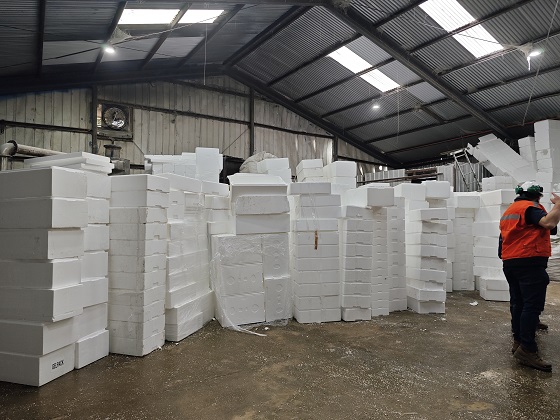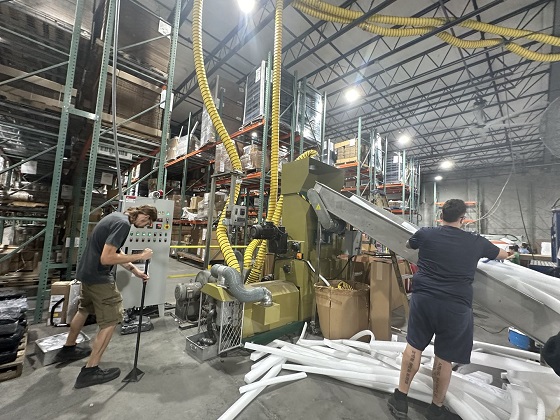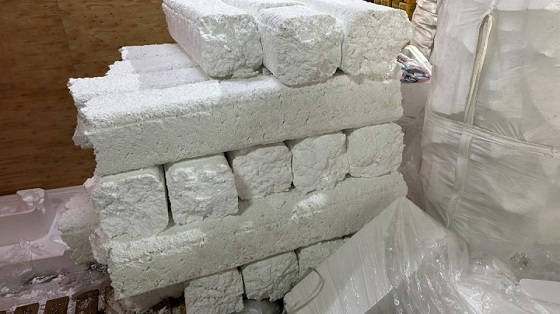A Few Tips for Proper Maintenance of Recycling Equipment
Efficient waste management is vital to the well-being of our communities and the environment. Waste recycling machinery plays a pivotal role in the efficient handling and processing of waste. To ensure the longevity and optimal performance of these machines, proper maintenance is essential. In this article, we will look at some valuable tips for maintaining waste management machinery, emphasizing the importance of regular inspections, routine cleaning and adherence to manufacturer guidelines.

1) Regular Inspections: Regular inspections are the cornerstone of effective machinery maintenance. Conduct a thorough visual inspection to identify any signs of wear, damage or malfunction. Pay close attention to components such as conveyor belts, blades and hydraulic systems. Early detection of problems can prevent major breakdowns and costly repairs. Develop a comprehensive checklist and follow it carefully to ensure that all critical elements are covered. In terms of maintenance, it is necessary to have professional technicians who can accurately diagnose the cause of the failure and repair it with the appropriate tools and accessories.
2) Routine Cleaning: Waste management machines are exposed to a variety of substances that can cause clogging, corrosion and wear. Implement a routine cleaning program to remove debris, grease, and other substances that may affect machine function. Use appropriate cleaners and tools recommended by the manufacturer to avoid damage to sensitive parts. Regular cleaning not only extends the life of the machine, but also ensures optimum performance.

3) Lubrication: Proper lubrication is critical to the smooth operation of waste management machinery. Inadequate lubrication can lead to increased friction, overheating and premature wear of moving parts. Manufacturer's specifications for lubrication intervals should be followed and recommended lubricants should be used. Check oil levels regularly and add lubricant as needed. Remember that over-lubrication can be just as harmful as under-lubrication, so maintain the proper balance to maintain machine efficiency.
4) Training and Education: Make sure your staff is well trained and educated on the specific requirements of each waste management machine. Proper training reduces the risk of misuse or incorrect maintenance procedures, which can lead to machine damage. Stay up-to-date on the latest industry standards and advances, and provide ongoing training to keep your team informed of best practices.
5) Documented maintenance records: Keep detailed records of all maintenance activities performed on each piece of waste management equipment. Documenting maintenance activities helps track the history of the machine, identify patterns of problems, and plan for future maintenance needs. This information is invaluable when troubleshooting and critical for warranty claims.

6) Follow Manufacturer’s Guidelines: Always follow the manufacturer's maintenance guidelines and recommendations. These guidelines are designed to optimize machine performance and safety. Deviating from these recommendations can lead to warranty issues, reduced efficiency and potential safety hazards. Familiarize yourself with the manufacturer's documentation and make it readily available to your maintenance team.
Proper maintenance of your waste management equipment is essential for efficient and safe waste disposal. By implementing regular inspections, daily cleaning, proper lubrication, ongoing training and following manufacturer guidelines, you can extend the life of your equipment and minimize downtime. In the long run, investing time and resources in maintenance not only saves money, but also helps to improve the sustainability and effectiveness of your waste management process.
Greenmax has a worldwide network of engineers with decades of experience in the field of waste management machinery, so contact us today to find out how Greenmax can keep your machinery running efficiently and safely.
